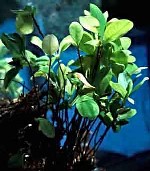|
Newsbrief:
Peruvian
Drink
Boasts
Coca
Kick
4/16/04
When Peruvian coca growers
gathered in Lima in February to protest US-inspired attacks on their crops,
one of their demands was that the Peruvian government help find legal markets
for their coca crops. The government may not have been responsive, but
private enterprise is stepping up.
The Associated Press this
week reported on the efforts of the Kokka Royal Food & Drink Company
(http://www.kokkadrink.com) to
market its new product, Kdrink. Kdrink is a bottled tea, but a very special
one: It is made from coca leaves, and each bottle contains 0.6 milligrams
of cocaine. Although that amount of natural, unprocessed cocaine has less kick than a cup of coffee, it places Kdrink and other Kokka products squarely within a thorny area at the juncture of national and international laws and treaties. Products containing low potency amounts of cocaine can be legally supplied within a regulated framework under the terms of the international drug control treaties, but only under the watchful eyes of the UN and United States. The US doesn't allow them at all, and even in nations like Peru that do the legal situation is uncomfortable.
|
 |
|
coca
seedlings
|
That hasn't stopped Kokka director
Eduardo Mazzini and a group of Peruvian and Spanish financial backers from
investing $300,000 in the product and opening a sales office in Spain,
Mazzini told the AP. Mazzini said the idea for the drink came when Spanish
friends visiting the Inca capital of Cusco discovered traditional coca
teas served to tourists to fight altitude sickness. They suggesting bottling
the drink. Now it comes in 10-ounce bottles that tout the drink's "divine
energy." The drinks are selling "better than expected," Mazzini said without
supplying particulars.
While Peruvian farmers are
allowed to grow 30,000 acres of coca for the legal market, including about
100 tons of coca leaf destined for the Coca-Cola Company in the US, according
to the UN Office on Drugs and Crime, total Peruvian production this year
is about 110,000 acres. With coca leaf fetching about $6 a pound, it is
a much more profitable crop than coffee, pineapples, or other alternatives
to coca promoted by the Peruvian and US governments.
Even the Peruvian anti-drug
agency DEVIDA conceded that finding new legal markets for coca leaf may
work better than attempting to suppress or replace the crop. "Right now
the best alternative crop is legal coca because it has the best price,"
said Fernando Hurtado, director of alternative development for the agency.
"What we want to avoid and fight is coca going to narcotics traffickers."
Anyone for some coca tea?
Visit https://stopthedrugwar.org/chronicle-old/280/cocasoap.shtml to read David Borden's 3/28/03 editorial, "I Smuggled Coca Soap Into the United States."
-- END --
|
Issue #333, 4/16/04
"BUSTED" Bustin' Out All Over As Flex Your Rights Flexes Its Video Power |
Alert: Help Free Richard Paey and Stop the Florida Prescription Monitoring Program Bill |
DRCNet Interview: Dr. Robert Kale, Pain Management Specialist, Fort Smith, Arkansas |
Pain Patients Head for Washington, Demand Congressional Hearings |
Newsbrief: Connecticut Medical Marijuana Bill Wins Committee Vote |
Newsbrief: Spanish Pharmacists Support Catalonian Pilot Study on Marijuana in Pharmacies |
Newsbrief: Federal Civil Rights Lawsuit Filed In California "Hippie Profiling" Case |
Newsbrief: US Drug Czar Blames Canada for Marijuana Emergency Room Admissions |
Newsbrief: Mexican Governor Suspends Every Detective in Drug Corruption Probe |
Newsbrief: Peruvian Drink Boasts Coca Kick |
Protect Live Music -- National Day and Night of Outrage This April 24 to Protest RAVE Act Abuses |
This Week in History |
The Reformer's Calendar
|
This issue -- main page
This issue -- single-file printer version
Drug War Chronicle -- main page
Chronicle archives
|
PERMISSION to reprint or
redistribute any or all of the contents of Drug War Chronicle (formerly The Week Online with DRCNet is hereby
granted. We ask that any use of these materials include proper credit and,
where appropriate, a link to one or more of our web sites. If your
publication customarily pays for publication, DRCNet requests checks
payable to the organization. If your publication does not pay for
materials, you are free to use the materials gratis. In all cases, we
request notification for our records, including physical copies where
material has appeared in print. Contact: StoptheDrugWar.org: the Drug Reform Coordination Network,
P.O. Box 18402, Washington, DC 20036, (202) 293-8340 (voice), (202)
293-8344 (fax), e-mail [email protected]. Thank
you.
Articles of a purely
educational nature in Drug War Chronicle appear courtesy of the DRCNet
Foundation, unless otherwise noted.
|

